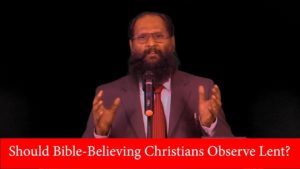The buzz rapidly went out on the across the nation system of Henry Kissinger’s previous acolytes: “Stay tuned.” Winston Ruler, one of Kissinger’s long-term previous associates, had recently affirmed before a Senate board on the destiny of Vietnam-period POWs, and he exited the feeling that a few Americans presumably were relinquished in the withdrawal from Vietnam in 1973. Ruler made it clear that he wasn’t censuring Kissinger for proceeding with the withdrawal at any rate. Still, the Kissinger hands viewed in dismal interest, sitting tight for their tutor to go ballistic. He did. Affirming before Sen. John Kerry’s council the following day, he upbraided the suggestion (not made by Ruler) that he purposely left POWs behind as a “level out falsehood.”
“I was furious at Kerry, not at Winston,” Kissinger told NEWSWEEK. “Winston is my companion.” Still, there are developing signs- -and much more mixed drink gathering talk- – of a cooling in the middle of Kissinger and some of his received group of previous counsels. As nationalsecurity counselor and secretary of state, Kissinger supported a noteworthy progression of proteges who went ahead to end up driving outside arrangement figures in both sides and each organization from that point forward. They incorporate Hedge’s NSC counselor Brent Scowcroft, Acting Secretary of State Lawrence Eagleburger and top Clinton counsel Anthony Lake. Master, for one, part with Kissinger on China after Tiananmen Square.
A nearby partner says Kissinger accepts that a large portion of the most condemning stories in the book originate from some previous NSC helpers who part with him bitingly over the Vietnam War and charges of wiretap ping. Kissinger has stayed near to the majority of his different associates however. At the same time a large portion of this gathering conversed with Isaacson, as well, and obviously couldn’t help letting some know of the stories of personality and trickiness that they had just swapped secretly among themselves for year (The previous sweetheart of one assistant reviews, “We could be in the most sentimental setting, and abruptly he’d need to discuss what Kissinger did in 1970.”) Now a considerable lot of these companions are telling Kissinger, “Isaacson didn’t utilize any of the constructive things I let him know.” It’s “an extreme time for Henry,” says one companion. “He feels double-crossed.”
Kissinger has ceased from talking about the book freely. Anyhow companions have heard an earful. “He is crazy over this book,” says one previous partner. William Hyland, the as of late resigned editorial manager of the prestigious Outside Issues diary and a long-term Kissinger companion, distributed a short survey commending the Isaacson book for its “adjusted objectivity.” After an irate telephone call to Hyland, Kissinger made his sentiments open: he didn’t go to the diary’s 70th-birthday function which was likewise being held to respect Hyland’s retirement- -despite the fact that he had been planned as the kickoff speaker. (Kissinger refered to a booking clash.)
The vast majority of the acolytes still accept history will judge Kissinger an awesome figure. “This isn’t anything for Henry to be disturbed about,” said one. “This is simply a long-late amendment to his Superman picture.” However for Kissinger, who has supported that picture both lock stock and done with force for a quarter century, its a revision he could have managed without.


Comments